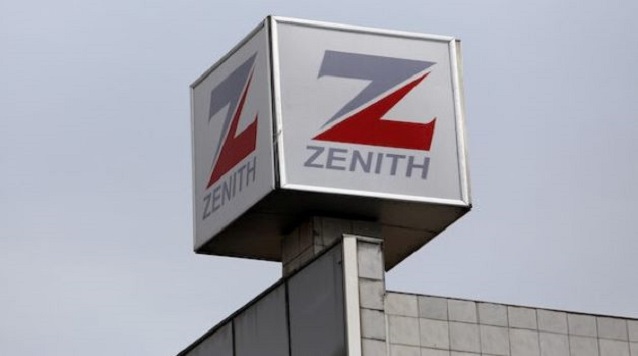E-Financial
Nigerian Banks Spend Billions Annually on KYCs – KPMG

A KPMG report has revealed that Nigerian banks spend billions of naira annually to implement the Know Your Customer (KYC), which is a compulsory regulatory tool used to reduce the menace of money laundering, terrorist financing and corruption, especially in managing public finance.

The report stated that its survey showed that individual banks could spend between N50 million and N400 million per annum on KYC requirement depending on the customer base of the bank.
The report also stated that on average, between 15 to 30 per cent of customers who start the KYC process do not complete it, because the process is too manual, information required would be difficult to obtain and time consuming and could last for more than four weeks in some cases.
It also noted that the KYC requirement could also be an inhibitor to the attainment of financial inclusion policy in Nigeria that did not have centralised identity management systems.
The report, which is titled “KPMG 2021 Know Your Customer (KYC) Survey: KYC Challenges and Opportunities in Nigeria,” revealed that 85 per cent of the banks that responded to its survey stated that KYC process constituted a significant cost to their operations, with 71 per cent anticipating that the cost of KYC would continue to increase.
In addition, more than 70 per cent of the responding banks, according to the KPMG, spend about N10,000 as direct cost for identity and address verification of a customer while others spend as much as N40,000 on the KYC of a customer.
The key drivers of the continual increase in the cost, according to the report, included frequent changes in regulatory requirements, financial inclusion programs, increase in customer base, initial cost of acquiring technology needed to implement KYC, more complex ownership structures of some businesses operating bank accounts and increase in the number of employees required to administer the KYC unit in a bank.
The survey findings added: “Our analysis of the data reveals that for many banks, the direct cost of KYC is below N50 million per annum, but depending on the size of the bank it can rise to as much as N400 million per annum, which do not include the indirect cost of KYC.
“Banks also incur significant indirect cost in performing KYC that include cost incurred in staffing the compliance office/sanctions screening desk, purchasing, installing and implementing technology, storing and managing customer KYC data, cost incurred due to regulatory reporting, fines incurred as a result of failure to report, opportunity cost incurred as a result of customers who are discouraged from opening accounts due to inefficient or cumbersome KYC systems.”
KPMG also highlighted that some of the topmost challenges banks encountered while implementing KYC in Nigeria include identifying complex legal structures, verifying addresses and identities, identifying and verifying politically exposed persons (PEPs), as well as remediating rather high-volume of legacy accounts.
It added: “Due to the current manual nature of searches at the Corporate Affairs Commission (CAC) as well as continued existence of jurisdictions designated as tax/secret havens – it is difficult for banks to unravel complex legal structures, especially where these complex legal structures are employed to mask true or ultimate beneficial owners.”
The report also noted that address verification is expensive and cumbersome in Nigeria and might not be effective in ascertaining the true location of potential money launderers or terrorist financiers during investigations.
It acknowledged that the deployment of Biometric Verification Number (BVN) and the ongoing National Identification Number (NIN) registration would continue to contribute to addressing this challenge of disparate identity systems in Nigeria that made it difficult for banks to effectively and efficiently identify individuals.
Mr. Saheed Olawuyi, Partner and Head of Forensic Services, KPMG in Nigeria, explained: “It is important for regulators and banks to continuously develop ways to address the KYC challenges, while not compromising the integrity of the financial systems.”
The report recommended that banks should continue to explore technology as a way of tackling the challenges of KYC in Nigeria and create opportunities to share the cost of KYC among them by maintaining common KYC utility facilities.
The KPMG report said: “We would like to encourage more investment in the deployment and adoption of artificial intelligence, machine learning and robotics to automate certain segments of the KYC process, so as to build more efficiency, accuracy and predictive capabilities in the KYC process.”
The report also urged the CAC to further enhance its recently launched digital platform to seamlessly enable users to carry out search on the directors and shareholders of companies, in order to drive efficiency of corporate onboarding and identification of complex ownership structures.
It also called on the CBN and other relevant regulators and stakeholders to streamline the definition of PEPs and “create a collaborative environment where all parties come together and proffer solutions to common KYC issues.”
E-Financial
Zenith Bank Gets Regulatory Approval for Full Takeover of Paramount Bank

Zenith Bank, Nigeria’s second biggest lender by market value, has received approval from the Competition Authority of Kenya (CAK) to acquire 100 percent of Paramount Bank Limited, clearing a key regulatory hurdle in its East African expansion drive.

In a statement on Thursday, CAK said the transaction is “unlikely to lead to a substantial prevention or lessening of competition in the market for the provision of banking services in Kenya” and would strengthen Paramount’s financial position, helping it meet enhanced core capital requirements over the long term.
The Kenyan regulator noted that the deal poses no risk of reduced competition in the country’s banking sector. Zenith currently has no banking operations in Kenya, while Paramount is a Tier III lender with a modest 0.2 percent market share.
“The approval is based on the Authority’s determination that the transaction is unlikely to harm competition, while any negative public interest concerns regarding employment can be addressed through mitigating remedies,” CAK added.
Paramount met the Central Bank of Kenya’s KSh3.0 billion core capital requirement in November last year, reporting KSh3.118 billion after raising KSh332 million from shareholders, according to Mwango Capital, a Nairobi-based research firm.
The deal reflects a broader shift among banks in East Africa’s largest economy as lenders seek growth opportunities beyond increasingly saturated home markets marked by weak credit expansion, rising regulatory costs, and intense competition.
While several global banks — including Standard Chartered and HSBC — have scaled back African operations over the past decade, Zenith’s move signals confidence in selective regional expansion, particularly in East Africa, where economic growth and financial inclusion trends remain supportive.
The banking group is also widening its continental footprint. Last month, the lender disclosed plans to expand into Ethiopia, Africa’s second most populous country, as it targets generating up to half of its profits outside Nigeria over the medium term.
Historically, Nigeria, the continent most populous nation contributed as much as 90 percent of the bank’s earnings, a dominance that is now gradually easing.
Data cited by The Africa Report show that profit contributions from foreign subsidiaries rose to 27 percent in the first nine months of 2025, up from 14 percent in 2024.
Nigeria’s banking recapitalisation drive is also pushing large lenders such as Zenith to deploy capital beyond their home market. In January 2025, Zenith — which holds an international banking licence — raised N350.4 billion ($242 million), lifting its paid-up capital to N614.6 billion ($425 million).
With higher capital buffers in place, banks are reassessing how best to deploy fresh funds as domestic earnings normalise following two years of windfall gains.
As part of the approval, Zenith has been required to retain Paramount’s 78 employees for at least 12 months after the transaction is completed.
The bank is listed on the Nigerian and London stock exchanges and operates across corporate, commercial, retail, and investment banking. Its international subsidiaries span the United Kingdom, Ghana, Sierra Leone, Gambia, the UAE, and China.
E-Financial
Court Jails Ogiemwonyi, Stockbroker for Theft of $80,000, N953m Shares Proceeds

Victor Ogiemwonyi, a Lagos stockbroker, and Partnership Securities Limited, his company, have been convicted for allegedly stealing shares worth N953 million and $80,000 belonging to one Mr. Arnold Onyekwere Ekpe, a former managing director of Ecobank Transnational Incorporated (ETI).

Ogiemwonyi was convicted after he was found guilty of two-count charges bordering on stealing, contrary to Section 285(1), (9) (b) and (c) of the Criminal Law of Lagos State, 2011 slammed on him by the Economic and Financial Crimes Commission (EFCC).
Ekpe, through Messrs Margaret Onyema, his counsel, has sometimes in October 2016 in a petition to the EFCC alleged that he instructed the defendants to sell his 96,077,872 units of Ecobank Transnational Incorporated (ETI) shares, which were sold at the rate of N1,296,885,311.02.
But he said out of the proceeds of the sale, the stock broker paid only N300,000,000.00 to him while he dishonestly diverted the balance for personal use.
Following investigations, the defendants were charged with two counts of stealing.
Count one reads:
”Victor Ogiemwonyi and Partnership Securities Limited between the months of June, 2016 and September, 2016 at Lagos within the jurisdiction of this honourable court dishonestly stole the sum of N953, 535,861.57 (Nine Hundred and Fifty Three Million, Five Hundred and Thirty Five Thousand, Eight Hundred and Sixty one Naira Fifty Seven Kobo) being part of the proceeds of sale of 96, 077, 872 Ecobank Transnational Incorporated Shares, property of Mr. Arnold Onyekwere Ekpe”.
Count Two reads:
“Victor Qgiemwonyi and Partnership Securities Limited sometime between June, 2016 and July, 2016 at Lagos within the jurisdiction of this honourable court dishonestly stole the sum of USD$80,000.00 (Eighty Thousand United States of America Dollars) which formed part of the accrued dividends on 96, 077,872 Ecobank Transnational incorporated Shares, property of Mr. Anold Onyekwere Ekpe”.
At trial, the prosecution, led by Ola Sesan, called five witnesses and tendered 67 exhibits, all of which were admitted and marked by the court.
The defence, on its part, called three witnesses, including the first defendant.
Delivering judgment on Wednesday, Justice Modupe Nicole-Clay of the Lagos State High Court sitting in Ikeja, Lagos convicted Ogiemwonyi and his company, Partnership Securities Limited, guilty on all counts.
The court sentenced the first convict to pay a fine of N10 million, while the second convict was ordered to pay a fine of N20 million.
Also, the court directed the convicts to pay back the entire money stolen from the petitioner, both in naira and dollars.
Recall that Securities and Exchange Commission, SEC, had in 2017 banned Victor Ogiemwonyi, from operating in the capital market for life over alleged unprofessional conduct in the Nigerian capital market.
He was also banned for life from holding directorship position in any public company in Nigeria.
He was also ordered to pay a penalty of N100,000.
SEC said Ogiemwonyi was banned after he was found guilty of breaching Rule 1(iii) of the Code of Conduct for Capital Market Operators and Their Employees as contained in its Rules and Regulations made pursuant to the Investments and Securities Act 2007.
The ban also followed petition by EFCC to SEC accusing Ogiewonyi of misappropriation of about N1.24 billion, $80,000.00, stealing and dishonest conversion of proceeds of share sale belonging to an investor.
It was alleged that he used his company to dupe over 300 investors over N4.8 billion with Arnold Ekpe a former Managing Director of Ecobank Transnational Incorporated, ETI, being one of his victims.
E-Financial
FCCPC Delists Non-Compliant Digital Lenders Post-January 5 Deadline

Federal Competition and Consumer Protection Commission (FCCPC) has commenced enforcement actions against Digital Money Lending (DML) operators that failed to regularise their operations under the Digital, Electronic, Online and Non-Traditional Consumer Lending Regulations, 2025 (DEON Regulations).

FCCPC
The commission withdrew the conditionally approved status of non-compliant DML firms and removed them from its official register of approved digital lenders, effective immediately after the January 5 compliance deadline.
FCCPC Executive Vice Chairman and Chief Executive Officer, Mr Tunji Bello, announced the measures on Wednesday, emphasising their role in upholding regulatory standards and ensuring certainty in Nigeria’s digital lending sector.
Mr Bello stated that the compliance window provided under the DEON Regulations, which took effect on July 21, 2025, had closed, paving the way for fair, orderly and due process-driven enforcement.
He noted that the actions target persistent issues such as exploitative loan recovery tactics, data privacy breaches, harassment of borrowers and anti-competitive practices that have plagued the sector.
The DEON Regulations, issued on September 3, 2025, under the Federal Competition and Consumer Protection Act 2018, mandate all non-bank digital lenders to register, adhere to fair interest rates, ethical debt recovery and robust data protection measures.
Non-compliance now attracts severe penalties, including fines up to N100 million or one per cent of annual turnover, operational restrictions, app store delistings and potential director disqualifications for up to five years.
As of late 2025, the FCCPC had granted full approval to 438 digital lending companies, with recent data indicating over 521 firms now under regulatory scrutiny post-deadline.
The commission’s phased crackdown involves collaboration with the Central Bank of Nigeria, Google and Apple for account freezes and global app removals targeting unregistered platforms.
Industry watchers described the enforcement as a landmark move to sanitise Nigeria’s fast-expanding digital credit market, which has seen rising borrower complaints despite earlier 2022 interim guidelines.
The FCCPC reiterated its commitment to balancing innovation with consumer protection, urging affected operators to swiftly meet requirements for reinstatement.

 E-Financial2 days ago
E-Financial2 days agoZenith Bank Gets Regulatory Approval for Full Takeover of Paramount Bank

 Telecom2 days ago
Telecom2 days agoMTN Nigeria Suffers 9,218 Fibre Cuts in 2025 as Vandalism, Theft Cripple Network

 E-Business2 days ago
E-Business2 days agoFirm Detected a Fivefold Surge in QR Code Phishing Attacks in the Second Half of 2025

 Telecom2 days ago
Telecom2 days agoNew Investment Fund Targets Acceleration of Emerging Technology in Nigeria

 News2 days ago
News2 days agoNITDA Commits to Digital Inclusion for Persons with Disabilities

 Telecom2 days ago
Telecom2 days agoNCC Licences Six New ISPs to Challenge Telcos, Satellite Giants

 E-Financial2 days ago
E-Financial2 days agoFCCPC Delists Non-Compliant Digital Lenders Post-January 5 Deadline

 E-Business2 days ago
E-Business2 days agoJustMarkets Unveils Top 5 Trading Assets for 2026 Profits



























